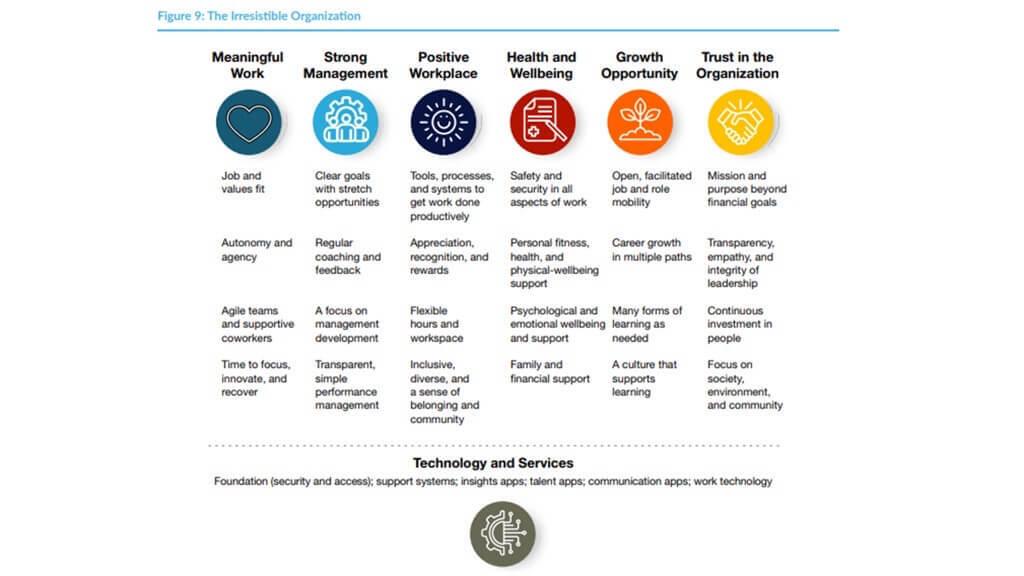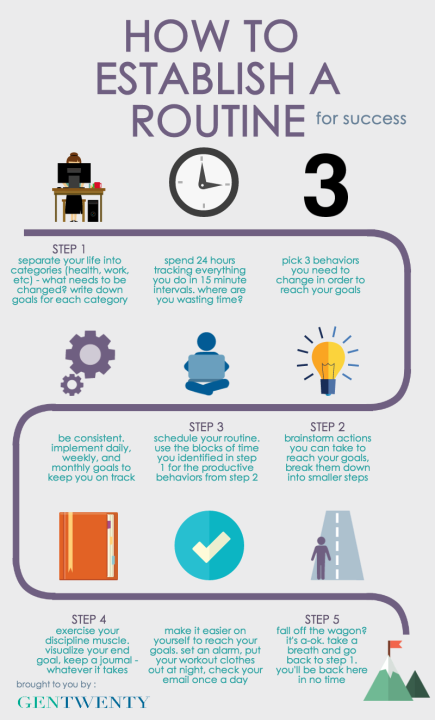Unlocking your true potential starts with setting the right personal development goals for unprecedented career growth. Discover them now!

Image courtesy of Valentin Antonucci via Pexels
Table of Contents
- Finding Your Why
- Setting Clear and Achievable Goals
- Continuous Learning and Education
- Embracing Change and Stepping Out of Comfort Zones
- Cultivating Self-Compassion and Mindfulness
- Building a Supportive Network and Seeking Mentorship
- Overcoming Obstacles and Failure
- Celebrating Milestones and Reflecting on Growth
- Examples of Personal Development Goals for Career Growth
Personal growth and development play a vital role in leading a fulfilling and purpose-driven life. It is through our continuous self-improvement efforts that we can unleash our full potential and achieve success in various aspects of life, including our careers. Setting personal development goals can help us navigate our professional journey with clarity and purpose. In this blog post, we will explore 18 examples of personal development goals that can fuel your career growth and help you reach new heights.
Finding Your Why
Before we dive into specific personal development goals, it is essential to take the time to understand your why. Defining your purpose and goals in life is the foundation upon which personal growth is built. Reflect upon your values, passions, and what drives you. Once you have a clear understanding of your why, you can align your personal development goals with your overarching purpose.
Setting Clear and Achievable Goals
Setting clear and achievable goals is the next step in your personal development journey. By breaking down long-term objectives into smaller, more manageable steps, you create a roadmap for success. Begin by defining your long-term career goals, such as a promotion or a specific role. Then, set short-term goals that will help you progress toward your ultimate objective. Remember to make your goals specific, measurable, attainable, relevant, and time-bound (SMART).
Continuous Learning and Education
Learning should be a lifelong commitment, especially in today’s rapidly evolving professional landscape. Whether it’s through reading books, taking online courses, attending seminars or workshops, or even acquiring new certifications, continuous learning is essential for personal growth and career advancement. Invest in expanding your knowledge and developing new skills that are relevant to your field. Stay curious and hungry for knowledge.

Image courtesy of hrcurator.com via Google Images
Embracing Change and Stepping Out of Comfort Zones
Personal growth often requires embracing change and stepping out of your comfort zone. This means being open to new opportunities, taking calculated risks, and facing challenges head-on. Fear and resistance to change can hinder your progress. Embrace the unknown, push through your fears, and trust in your abilities. Remember, great achievements often lie just beyond your comfort zone.
Cultivating Self-Compassion and Mindfulness
Self-compassion and mindfulness are essential elements of personal development. Be kind to yourself, practice self-care, and engage in activities that bring you joy and relaxation. Incorporate mindfulness techniques, such as meditation or journaling, into your daily routine to cultivate a sense of presence and gratitude. Develop a positive mindset and practice self-talk that supports your personal growth journey.

Image courtesy of www.humanresourcesonline.net via Google Images
Building a Supportive Network and Seeking Mentorship
Surrounding yourself with like-minded individuals who support and encourage your personal growth is crucial. Build a supportive network of colleagues, mentors, and friends who inspire you to push your limits and achieve your goals. Seek out mentors who have already achieved what you aspire to accomplish and learn from their experiences. Their guidance and wisdom can provide valuable insights and shortcut your path toward success.
| Personal Development Goals | Description |
|---|---|
| 1. Improve Communication Skills | Enhancing verbal and written communication abilities for effective workplace interactions. |
| 2. Develop Leadership Skills | Acquiring necessary skills to lead and motivate teams towards achieving organizational goals. |
| 3. Enhance Time Management | Improving the ability to prioritize tasks, manage deadlines, and increase productivity. |
| 4. Learn New Technologies | Staying updated with the latest industry trends and mastering new tools and technologies. |
| 5. Cultivate Creativity | Fostering innovative thinking and problem-solving skills to generate unique solutions. |
| 6. Expand Networking | Building professional relationships, expanding connections, and seeking mentorship opportunities. |
| 7. Develop Emotional Intelligence | Improving self-awareness, empathy, and interpersonal skills for better collaboration. |
| 8. Build Resilience | Enhancing the ability to handle setbacks, adapt to change, and bounce back from failures. |
| 9. Boost Presentation Skills | Improving the ability to deliver impactful and engaging presentations to various audiences. |
| 10. Enhance Problem-Solving Abilities | Developing analytical thinking and problem-solving skills to overcome challenges effectively. |
| 11. Gain Financial Literacy | Understanding financial concepts, budgeting, and making informed financial decisions. |
| 12. Master Project Management | Acquiring skills to plan, execute, and efficiently manage projects from start to finish. |
| 13. Develop Negotiation Skills | Learning effective negotiation techniques for achieving win-win outcomes in different situations. |
| 14. Improve Organizational Skills | Enhancing the ability to organize tasks, resources, and information efficiently. |
| 15. Gain Industry-Specific Knowledge | Acquiring in-depth knowledge about the industry trends, regulations, and best practices. |
| 16. Promote Work-Life Balance | Creating a healthy balance between work and personal life to reduce stress and improve well-being. |
| 17. Enhance Critical Thinking | Developing analytical reasoning, logical thinking, and decision-making skills. |
| 18. Foster Continuous Learning | Embracing a lifelong learning mindset to stay updated and adapt to the evolving business environment. |
Overcoming Obstacles and Failure
Obstacles and failure are inevitable in life and career. Rather than viewing them as setbacks, see them as opportunities for growth. Embrace challenges as opportunities to learn and develop resilience. When faced with setbacks, reflect on the lessons learned and adjust your approach accordingly. Some of the most successful individuals have experienced failure multiple times before achieving their breakthroughs. Remember, failure is just a stepping stone toward success.

Image courtesy of www.linkedin.com via Google Images
Celebrating Milestones and Reflecting on Growth
As you progress on your personal development journey, it’s important to celebrate milestones and achievements along the way. Take the time to acknowledge and reward yourself for reaching your goals. Celebrating these moments will motivate you to continue striving for growth. Additionally, engage in regular self-reflection to assess your progress and identify areas for improvement. Celebrating milestones and reflecting on growth keep you accountable and fuel your personal development journey.
Examples of Personal Development Goals for Career Growth
Now that we have explored the pillars of personal development, let’s dive into some specific examples of personal development goals that can accelerate your career growth:
1. Enhance communication skills: Improve your ability to articulate ideas, actively listen, and adapt communication style to different audiences.
2. Develop leadership skills: Cultivate leadership qualities such as effective decision-making, delegation, and inspiring and motivating others.
3. Expand networking abilities: Grow your professional network by attending industry events, joining relevant organizations, and actively engaging with peers and industry leaders.
4. Strengthen time management skills: Improve your ability to prioritize tasks, delegate when necessary, and manage your time effectively to enhance productivity.
5. Learn to manage conflict: Develop skills to navigate and resolve conflicts constructively, fostering positive relationships and collaboration within the workplace.
6. Acquire financial literacy: Enhance your understanding of financial concepts, such as budgeting, investing, and analyzing financial statements, to make informed decisions related to your career growth.
7. Develop emotional intelligence: Cultivate self-awareness, empathy, and emotional regulation to build strong relationships, effectively manage emotions, and navigate complex workplace dynamics.
8. Improve critical thinking and problem-solving: Strengthen your ability to analyze complex situations, think creatively, and develop effective solutions to problems.
9. Enhance technological skills: Keep up with emerging trends and develop proficiency in relevant technologies to stay competitive in your industry.
10. Develop a growth mindset: Nurture a mindset that embraces challenges, views failures as learning opportunities, and fosters a desire for continuous improvement.
11. Become culturally competent: Develop an understanding and appreciation for diverse cultures, perspectives, and backgrounds to thrive in our globalized professional environment.
12. Build negotiation skills: Learn effective negotiation techniques to navigate various professional situations, such as salary negotiations or contract discussions, to secure favorable outcomes.
13. Strengthen project management skills: Develop skills in planning, organizing, and executing projects, ensuring they are completed efficiently and within budget.
14. Enhance digital literacy: Stay up to date with technological advancements, digital tools, and platforms relevant to your industry to enhance your professional capabilities.
15. Foster a growth-oriented workplace mindset: Encourage a culture of continuous learning and personal development among your team or colleagues to create an environment where everyone thrives.
16. Improve public speaking skills: Enhance your ability to deliver impactful presentations, speak confidently in public settings, and effectively engage with an audience.
17. Develop resilience and adaptability: Strengthen your ability to bounce back from setbacks and adapt to change, demonstrating agility in your professional journey.
18. Foster work-life balance: Establish boundaries, prioritize self-care, and maintain a healthy work-life balance to prevent burnout and sustain long-term career growth.
Remember, this is just a starting point. Tailor these examples to your specific career goals and aspirations. Develop a plan with actionable steps and hold yourself accountable. Embrace the challenges and setbacks as opportunities for growth. With dedication and commitment to personal development, you can unleash your potential and achieve remarkable career growth.
Unleash your potential today and embark on your personal development journey. Start by setting one or two personal development goals and take the first step towards growth. Remember, personal development is a lifelong journey, and your dedication to growth will pay off in both your personal and professional life. Embrace the journey and enjoy the transformation it brings!
Frequently Asked Questions
Question 1:
How do I find my purpose and set personal development goals aligned with it?
Answer 1:
Finding your purpose requires self-reflection and introspection. Explore your passions, values, and what drives you. Once you have a clear understanding of your why, you can align your personal development goals with your purpose. Set goals that resonate with your values and contribute to your overall fulfillment.
Question 2:
How can continuous learning and education benefit my career growth?
Answer 2:
Continuous learning and education are essential for staying relevant in today’s rapidly evolving professional landscape. By continuously upgrading your knowledge and skills, you become a valuable asset to your organization. It also opens up opportunities for career advancement and increases your marketability in the job market.
Question 3:
Why is stepping out of my comfort zone important for personal growth?
Answer 3:
Stepping out of your comfort zone is where personal growth happens. When you challenge yourself and embrace new experiences, you expand your skills, knowledge, and confidence. By pushing through your fears, you overcome limitations and unlock your true potential. Growth and transformation occur when you venture into unfamiliar territory and embrace the unknown.
Question 4:
How can I measure my progress and celebrate milestones?
Answer 4:
Measuring progress and celebrating milestones is essential for staying motivated and accountable. Break your long-term goals into smaller, measurable objectives. Regularly assess your progress against these objectives. Celebrate achievements with rewards or by acknowledging your accomplishments to boost your motivation. Reflect on your growth journey, learn from the experience, and use it as fuel for future development.
Leave a Reply